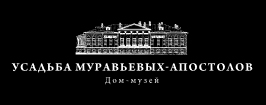This is my series of photographs “Dreams about Russia.” The works that you see have been inspired by the Russian literature of the 20th century – the written works of my favorite writers I. S. Shmelyov, I. A. Bunin, B. K. Zaytsev, and A. M. Remizov. The representatives of the Russian literary world who were born and grew up in pre-revolutionary Russia, in the midst of all the hardships and wanderings, still were able to preserve and carry their love toward their motherland, washed in tears, but not extinguished in a strange land. The kind of love that, thanks to their tireless work and bright talent, remained dwelling in the memory of the generations. The titles of their books speak for themselves: “The Summer of the Lord,” “The Heavenly Ways,” “Dark Avenues,” “Earthly Sorrow,” Unfading Light.” The memories of childhood and adolescence, intertwined with the family life that took its course in the bosom of the Russian countryside in the far-away emigration, spilled out as the lines of the books and flowed into the hearts of the Russian people. The outside world that was previously exposed to Turgenev, Tolstoy, and Dostoevsky saw the continuation of the Russian literature in these new writers of which Ivan Bunin, “the first among the equals,” was awarded the Noble Prize for Literature (“The Life of Arseniev,” 1933). By preserving their motherland as a shrine and handing it over to its descendants, these writers bequeathed to us not only the patriotic love for the native land, but also a true image of the Russian soul illuminated by the rays of the Orthodox Faith, the beauty of the Russian national character manifested in the family and class relations, and an entire polyphonic way of Russian life which, like a grand orchestra, sounded in Russia back then. It was through their books and by entering into the spirit of this truly unsurpassed Beauty that my heart could no longer remain indifferent, and my eyes were searching for and recollecting the picturesque image of that kind of Russia that can be seen and touched on the pages of the favorite works. That very image, which for many of our fellow countrymen was burning with unquenchable fire through all the hardships and troubled years, illuminating their life journey in its humble perseverance and firm faithfulness to the chosen ideals. The first photos in this series were taken on the old Yaroslav road, that very same pilgrimage path upon which little Vanya Shmelyov travelled to the Trinity of St. Sergius accompanied by an old man Gorkin (“Pilgrimage”).
During the creation of these works, a heavy obstacle in the form of the traces of destruction and desolation seen virtually everywhere arose; they were like awful wounds that left their scars on the Russian landscape scenes and architecture. Here, on these photos, you will not see these wounds; however, their presence remains in my memories and disappointment of the artist when I felt inability to complement this series with new works. The predominant part of the items for these photographs was found in central Russia: Vologda, Tver, Yaroslavl governorates, as well as Kiev and Crimea – all collected during the years of travelling through the places that became favorite and cherished.
The deliberate “blur” of an image that may surprise the viewer, at first, is a result of an employment of a special lens called monocle which creates a soft, glowing, and distinctly graphic picture. In my opinion, it is the soft focus that reproduces the image of pre-revolutionary Russia in the most remarkable way, enriching the photos with the magic patterns of the Russian poetry.
Perhaps, when looking at these photos, you may feel as though nothing had happened. No demolished and corrupted temples, no wretched human lives bloodstained in terror and marred by the deaths of the loved ones, and no traces of the stale and faceless modern world, which often invades the artistic space without invitation. And perhaps, so be it, at least, on these photographs. An image must remain an image and be spotless and blameless just like faith and love for all that is dear and all that we feel and nurture in our hearts as these bright dreams about Russia which I have dreamt once and which became a reality today. As for myself, I ask God for one thing only that these dreams never come to an end.
Alexander Krasotkin, October 2013г.








